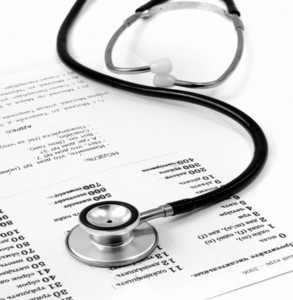Clinical studies are trials conducted in humans to test the efficacy of new drugs, devices, and other forms of treatment, as well as those already approved. On the other hand, preclinical or non-clinical studies are in vitro or in vivo studies, carried out on animals, which are necessary to evaluate the toxicity of the product and prove drug safety.
Clinical and non-clinical information can be classified into four types of studies [1]:
- Preclinical: include in vitro and animal population experiments, which seek to obtain information regarding efficacy, toxicity, and pharmacokinetics; and for pharmaceutical companies to decide whether to continue with clinical studies.
- Phase I Clinical Studies: studies with a small group of people (20 to 80), to determine the safety, tolerability, and pharmacokinetic and pharmacodynamic parameters of the drug. Dosage ranges are also included to find the appropriate ones. They are usually conducted with healthy volunteers, but there are exceptional cases, such as in oncology and Human Immunodeficiency Virus (HIV) trials.
- Phase II Clinical Studies: work is done with larger groups (20 to 300 people). They can be divided into IIA (dosage requirements, i.e. how much should be administered) and IIB (efficacy).
- Phase III Clinical Studies: multicentre studies with a large number of patients (300 to 3,000, a larger number may be required) to assess the effectiveness of the drug in comparison with the standard of care.
Table 1 presents the clinical and non-clinical information required by current regulations for the health registration of biological and/or biotechnological products in each of the country’s studies in Central America and the Caribbean, including Brazil and Chile.
| Table 1: Clinical and non-clinical information required for registration of biologics and biotechnology products in the nine Latin American countries
|
| Country
|
Clinical and non-clinical information
|
| Brazil
|
- Non-clinical studies
- Clinical studies
|
| Chile
|
- Preclinical studies
- Phase I, II, and III clinical studies
|
| Costa Rica
|
- Conclusive report of preclinical studies
- Conclusive report from phase I, II and III clinical studies
|
| Cuba
|
- Written summary of module 2
- Non-clinical information (module 4) and clinical information (module 5)
|
| El Salvador
|
- Pharmacological informatio
- Conclusive report of preclinical studies
- Conclusive report of clinical studies
|
| Guatemala
|
- Phase I, II, and III clinical studies
|
| Honduras
|
- Preclinical information - Phase III clinical studies
|
| Panamá
|
- Preclinical and clinical studies demonstrating safety, efficacy and quality of the product
|
| Dominican Republic
|
- Non-clinical studies
- Phase I, II, and III clinical studies
|
Some of the regulations evaluated require information from all types of studies, both clinical and preclinical, as is the case in Costa Rica, El Salvador, Panama, the Dominican Republic, Brazil, and Chile. In Guatemala, by contrast, preclinical studies are not requested. And in the case of Honduras, with respect to clinical information, only phase III information is of interest, possibly assuming that it has already gone through the two previous stages.
Pharmacovigilance refers to the set of activities related to the detection, evaluation, understanding, and prevention of adverse effects or any other drug-related issues. At this stage in which biological and biotechnological products are used with increasing frequency, these actions are necessary to ensure their safety and effectiveness, as some rare adverse effects are only detected after the product is marketed. For this reason, health registration calls for a risk management and post-marketing pharmacovigilance plan. Of all the countries studied, Honduras is the only country that does not request it. In Cuba and Chile, this process is also explained in detail, indicating how to complete the report and the information it should contain.
In the search for divergences in the clinical and non-clinical information requested, as well as in pharmacovigilance programmes in the nine Latin American countries, significant differences were found throughout the study.
Editor’s comment
Readers interested to learn more about pharmacovigilance of biologicals/biosimilars are invited to visit www.gabi-journal.net to view the following manuscript published in GaBI Journal:
Pharmacovigilance, traceability and building trust in biosimilar medicine
Roundtable on biosimilars: pharmacovigilance, traceability, immunogenicity, 15 November 2016, Madrid, Spain
GaBI Journal is indexed in Embase, Scopus, Emerging Sources Citation Index and more.
Readers interested in contributing a research or perspective paper in Spanish and/or English to GaBI Journal – an independent, peer reviewed academic journal – please submit your manuscript here.
GaBI Journal Citation Impact
1.9 – CiteScore 2020 (calculated on 5 May 2021)
2.2 – CiteScoreTracker 2021 (Last updated on 5 January 2022)
Submit a manuscript to GaBI Journal
Related articles
Differences in immunogenicity, pharmacovigilance and legal documents in biological products in Latin America
Regulations of the registration of biosimilars in Latin America
Definition of biological terms in Latin America
Regulation of the registration of biological drugs in Latin America
Reference
1. Ramirez-Telles M, Mora-Roman Jose J, Fallas-Cartin M. Registro sanitario de medicamentos biológicos y biotecnológicos en América Latina. Ars Pharm. 2021;62(2):131-43.
Permission granted to reproduce for personal and non-commercial use only. All other reproduction, copy or reprinting of all or part of any ‘Content’ found on this website is strictly prohibited without the prior consent of the publisher. Contact the publisher to obtain permission before redistributing.
Copyright – Unless otherwise stated all contents of this website are © 2022 Pro Pharma Communications International. All Rights Reserved.








 0
0











Post your comment